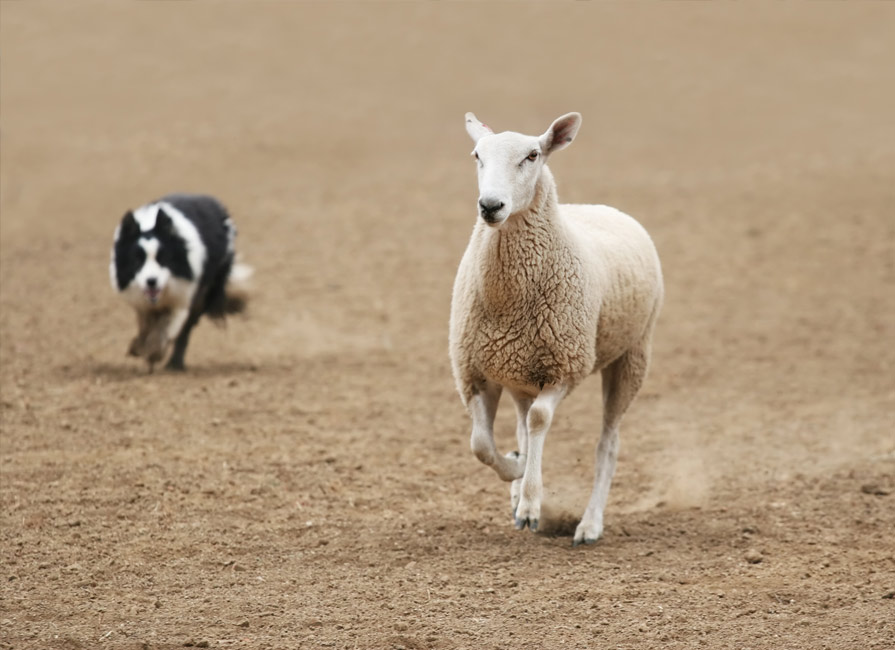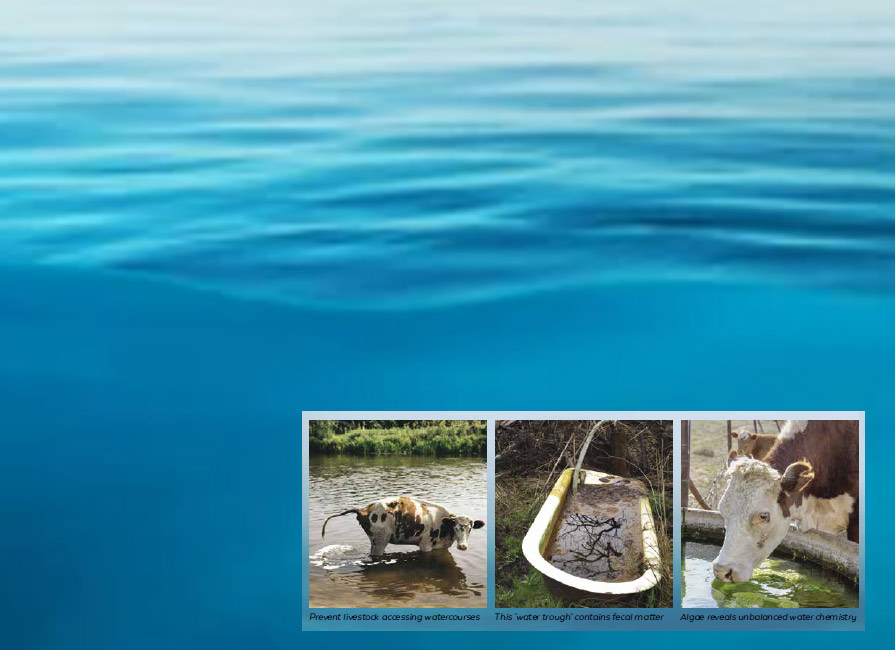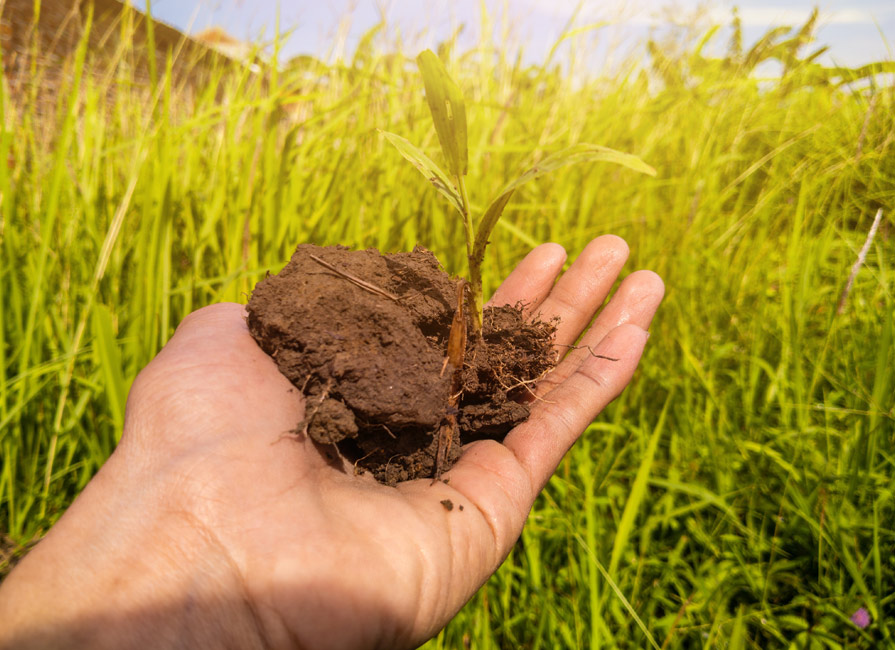Water is arguably the most important nutrient on earth. It is “the universal solvent,” providing…

Border Patrol
Training a working dog for sheep requires commitment, skill and patience—particularly for the Border Collie, on which this article will focus. Before even thinking about the introduction to sheep, you must first negotiate puppy selection, provide appropriate housing, ensure a good diet and general welfare, and establish a strong bond with your dog.
Characterised by high intelligence, presence and loyalty, the Border Collie is more like a precision instrument and requires special training and care, as well as understanding, affection, and empathy. A good sheepdog will work above and beyond the call of duty throughout its life. A good sheepdog makes a shepherd’s life easier; a good shepherd reveres their sheepdog.
Selecting a puppy
The time spent researching the background of a future working partner is a small price to pay for the years of loyalty and hard work you will get from the right dog.
It is generally accepted that bad training and poor day-to-day management can result in puppies of great potential failing to make good working dogs, while sympathetic training can create excellent working dogs from animals of lesser breeding.
Nevertheless, good breeding does increase the likelihood of a good working dog, and a skilled breeder will ensure the breeding lines of the sire and the dam are compatible, as well as minimising genetic health issues. Choosing from a registered breeder also means you can see the family history and ask important questions: Were the parents and grandparents easy to train? Did they mature early or late? Were they gentle or hard on stock?
Collies are bred to work and the criteria for a good dog is keen hearing, plenty of stamina and the ability to work in all weathers. The nearer to this standard a dog is bred, the better equipped it will be to do the work it was intended for. But whether you buy from a recognised breeder or not, only ever buy a puppy from parents that were tested for Progressive Retinal Atrophy (PRA) and Collie Eye Anomaly (CEA).
Feeding
As with all animals, a correct diet is important for growth and wellbeing, and protein intake must be balanced with the output of energy for maintenance through its different life stages. Remember: energy should be the result of stamina—not high protein—and a diet too high in protein when the dog is young can result in skeletal issues later on in life. Although an expensive diet is not necessary, cheap feed is almost always a false economy in the long run. It is well worth investigating the ingredients of any feed and selecting carefully for your dog’s age, overall energy requirements and the individual characteristics of the dog.
Housing and welfare
A dog is entitled to its own space and deserves clean, dry accommodation where it can seek peace and rest at the end of a working day, whether this is in a kennel, outbuilding, dog run or in the home.
Kenneled: The kennel and surrounding area must be kept clean and dry, with ample shelter against wind and rain. The structure must be completely draft and rain proof, with ample space for the dog to stretch its legs. Ensure a good supply of clean dry bedding is provided each night with a ‘digging strip’ across the inside of the kennel to prevent the bedding being scattered outside when the dog digs its bed.
Outbuilding: An empty stable or a barn provides ideal accommodation, plus room for exercise and freedom to move around. Dogs prefer a small and compact sleeping area where they can feel safe and generate warmth, so always provide a suitable box or straw kennel for sleeping quarters. Where appropriate, a wire window or gate to the outdoors will prevent boredom.
Purpose-built run: A purpose-built run offers the advantage of shelter and outdoor vision. Ensure you provide a suitable protected sleeping area. A covered run is important to avoid wet bedding, while solid flooring is essential for hygiene and to prevent digging.
Home: While keeping a dog that’s expected to do a lot of wet and dirty work in the home is not usually desirable, a warm utility or boiler-room can serve as good canine housing. However, it is important to be honest about your relationship with your dog and its boundaries in the home, as the working relationship can be compromised if that mutual respect is lost.
Health and wellbeing
A dog will grow, mature and develop in its own time. Forcing a dog into maturity before it is ready will not gain time; in fact, it can slow the dog’s training program. Allow a dog to develop slowly and promote only when it is able to always think before it acts.
Collies are highly intelligent. Too much restriction on freedom will compromise the dog’s mental health and wellbeing, leading to frustration, barking and even aggression. However, too much freedom can lead a dog to become overly dominant and a breakdown in the working relationship. Ensure the dog understands that while it owns only its own space, the rest of the property (whether a garden or hundreds of acres) belongs to the handler.
All dogs should be wormed and treated for fleas regularly, and puppies should be vaccinated against main disease threats. Always seek the advice of a qualified veterinarian.
A healthy dog with a clean coat is a happy dog. While most dogs will keep themselves clean, it is important to wash or hose down dogs that constantly work in mud before the mud dries. Keep ears clean and free from tangles and regularly check the body, coat and pads for thorns and ticks. A long-coated dog may seem hot in summer but clipping the coat is not the answer: the coat is long for a reason and the dog will suffer in extremes of heat, cold or wet if removed.
Empathy
A good dog will save its handler from needless running, worrying if a sheep is hiding behind a wall, from being driven to exasperation when trying to pen wayward ewes and lambs, and so on. A shepherd asks a lot from a dog and always receives; a dog asks for nothing but a kind word, a loving touch, and a best friend. If you are unable to spend the time getting to know your dog, to understand its needs, and create a bond, then having a dog may not be a good fit.
Treat your dog well and the look in a dog’s eyes when you walk towards it will say it all.
Further information
The International Sheep Dog Society is a significant online resource. Visit www.isds.org.uk/. The following books are highly recommended: Training The Sheep Dog by Thomas Longton and Barbara Sykes; Living with Border Collies by Barbara Sykes; The Farmer’s Dog by John Holmes; and Dog Owner’s Veterinary Handbook by David Youngs and John Bower.
This article is based on a longer piece written by Barbara Sykes, leading author on training border collies and owner of Mainline Border Collie Centre, UK. To read the full article, email info@agreenerworld.org.za or visit agreenerworld.org.za/resources/science-and-research
GUIDELINES FOR WORKING DOGS
Working dogs can be of valuable assistance to both protect and manage animals on the farm. A Greener World has produced Guidelines for Working Dogs, offering Animal Welfare Approved farms guidelines on the appropriate management of working dogs, including dog selection and training, health management, appropriate diet, shelter and handling. Download a copy at agreenerworld.org.za
Originally published in the Spring 2023 issue of AGW’s Sustainable Farming magazine.



